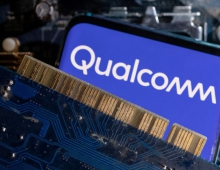
Qualcomm to Collaborate with Google on Android Things OS
Qualcomm will to collaborate with Google to add support for the new Android Things operating system (OS) in Qualcomm Snapdragon processors.
Android Things is a new vertical of Android designed for Internet of Things (IoT) devices. By using their expertise in Android and Snapdragon processors to support development of a variety of connected devices aimed at both consumer and industrial applications, this initiative intends to help developers participate in the IoT opportunity.
The design of IoT devices can be a complex task, usually requiring developers to bring together multiple connectivity technologies, sensors, data processing and storage, advanced multimedia and user interfaces, security, cloud integration, device management, as well as over-the-air upgrades and services. Development can be particularly challenging in fragmented OS ecosystems lacking a consistent environment, software tools and support required to create applications.
Google and Qualcomm anticipate Android Things running on Snapdragon processors to offer developers familiar connectivity environments, including cellular, Wi-Fi and Bluetooth; support for a wide array of sensors; camera, graphics, multimedia and rich UI capabilities; hardware-based security; Google services and cloud integration; test and optimization tools, and more.
Android Things is in developer preview and is anticipated to be released more broadly next year on Snapdragon processors.
Android Things and Weave
Google is releasing a Developer Preview of Android Things, a way to build IoT products with the power of Android. Now any Android developer can quickly build a smart device using Android APIs and Google services, while staying secure with updates direct from Google. Google incorporated the feedback from Project Brillo to include familiar tools such as Android Studio, the Android Software Development Kit (SDK), Google Play Services, and Google Cloud Platform. And in the coming months, Google will provide Developer Preview updates to bring the infrastructure for securely pushing regular OS patches, security fixes, and your own updates, as well as built-in Weave connectivity and more.
There are several hardware solutions available for you to get started building real products with Android Things today, including Intel Edison, NXP Pico, and Raspberry Pi 3. You can easily scale to large production runs with custom designs of these solutions, while continuing to use the same Board Support Package (BSP) from Google.
Google is also updating the Weave platform to make it easier for all types of devices to connect to the cloud and interact with services like the Google Assistant. Device makers like Philips Hue and Samsung SmartThings already use Weave, and several others like Belkin WeMo, LiFX, Honeywell, Wink, TP-Link, and First Alert are implementing it. Weave provides all the cloud infrastructure, so that developers can focus on building their products without investing in cloud services. Weave also includes a Device SDK for supported microcontrollers and a management console. The Weave Device SDK currently supports schemas for light bulbs, smart plugs and switches, and thermostats. In the coming months we will be adding support for additional device types, custom schemas/traits, and a mobile application API for Android and iOS. Finally, Google is also working towards merging Weave and Nest Weave to enable all classes of devices to connect with each other in a secure and reliable way.





















